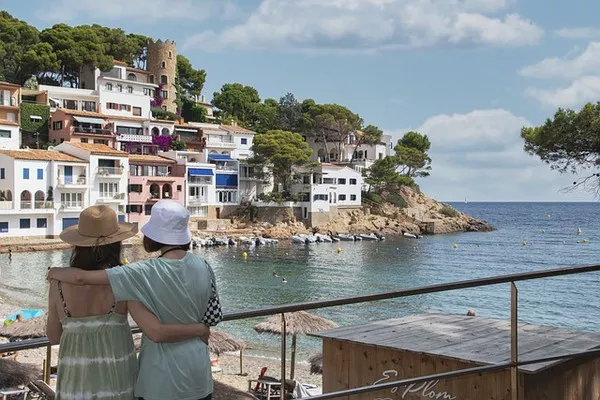In response to growing concerns over the proliferation of holiday rentals, Spanish authorities are championing the expansion of luxury hotels, aiming to mitigate anti-tourism sentiments in cities like Barcelona and Tenerife.
With Spain being the world’s second-most visited country, trailing only France, local officials are focusing on high-end tourism as a strategy to balance the tourism sector. This year, Spain is expected to welcome around 95 million visitors, doubling its population.
Local backlash against short-term rentals has led to protests across various regions, highlighting issues such as escalating housing costs and congested streets. In light of these challenges, Spanish cities are implementing new regulations to curb the rise of tourist apartments.
Barcelona, the top foreign tourist destination in Spain, has imposed a ban on new hotel constructions in its downtown area. However, existing hotels will have the opportunity to upgrade their classifications, and the city plans to open 5,000 new hotel beds in other districts. Additionally, all 10,000 tourist apartments in the city are set to be closed by 2028, according to Mayor Jaume Collboni.
Collboni emphasized that while demand cannot be controlled, supply can be regulated. His goal is to attract “quality tourism” by alleviating overcrowding and focusing on culture and gastronomy-driven visitors, as well as international conferences. He argued that hotels offer better quality and labor standards compared to short-term rentals, which have exacerbated housing issues, with rents and property prices soaring by 68% and 38%, respectively, over the past decade.
In Tenerife, plans are underway to introduce 1,000 additional beds in luxury hotels located in the island’s bustling south-east, which already boasts the highest concentration of five-star accommodations in Europe. Local tourism official Lope Alfonso stated that Tenerife aims to position itself not as a budget destination but as a premium one.
The timing appears favorable for such a transition. According to a recent CBRE survey, Spain has overtaken the UK as Europe’s leading market for hotel investments, particularly in the upscale segment. Madrid and Barcelona rank second and sixth, respectively, among Europe’s top ten cities for hotel investments.
Investors are also focusing on renovating existing hotels into luxury establishments. As of July 31, the number of four-star and five-star hotels in Spain has increased by 4.5% and 2.5%, respectively, with hotel prices rising by 7.18% year-on-year, surpassing inflation rates.
Manuel Melenchon, Managing Director of Hyatt Hotels for Europe, Africa, and the Middle East, highlighted the growth potential within Spain’s luxury and lifestyle sectors. Hyatt plans to expand its portfolio beyond the current 50 hotels in Spain, buoyed by rising American tourist arrivals. This year has seen the opening of a five-star Grand Hyatt in Barcelona, with two more hotels set to debut in Mallorca and Tenerife before year’s end.
Gabriel Escarrer, CEO of Melia Hotels International, emphasized the importance of high-end tourism in transforming Spain’s tourism model. Melia’s focus on the luxury segment, which constitutes 63% of its portfolio, has significantly boosted revenues.
Madrid’s recent emergence as a luxury destination is paying off, with tourists spending an average of €317 per day in July, significantly above the national average of €195. Barcelona is also making strides, ranking second in hotel investments with €285 million allocated between January and June, trailing only the Balearic Islands. Notably, 36% of these investments went to five-star hotels in Barcelona, surpassing the national average of 30%.
However, this shift to high-end tourism carries risks. Most tourists still seek affordable vacation options, often supported by a broad array of low-cost flights. The demand for tourist apartments has surged by 27% from January to July, compared to a 9.5% increase for hotels.
Public perception plays a crucial role in this transition. Recent protests in Barcelona, including incidents where tourists were sprayed with water guns, have tainted the city’s image. Mateu Hernandez, head of Barcelona’s tourism consortium, argued that such actions undermine efforts to market the city as a welcoming destination.
As the America’s Cup sailing competition commenced in Barcelona on August 22, promotional campaigns were launched to reposition the city’s image. Despite these efforts, there remains skepticism about the impact of luxury tourism on local residents. In Tenerife, Alfonso Boullon, a leader of protests against a beachside hotel project, criticized the notion that tourism benefits local communities, highlighting persistent low incomes in areas hosting luxury hotels.
The future of Spain’s tourism landscape hinges on balancing high-end appeal with broader accessibility and addressing the concerns of residents affected by the industry’s growth.

